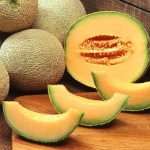Muscle cramps are painful, involuntary contractions of a muscle or part of a muscle. Seizures are typically brief and typically last a few seconds to a few minutes.
There is not always a known cause of muscle cramping, however it is thought that common contributors are intense exercise, neuromuscular abnormalities, medical conditions, an electrolyte imbalance, medication use, and dehydration.
Some studies indicate that consuming different nutrients, for example potassium, sodium, and magnesium, may help to alleviate muscle cramps. Additionally, a lack of nutrients like magnesium, vitamin D, and certain B vitamins may lead to muscle cramps.
Eating nutrient-dense foods may help to prevent muscle cramping by providing the body with the necessary vitamins and minerals.
There are certain foods that may help alleviate muscle cramps.
1. Avocado
Avocados are a rich source of nutrients that can help to prevent muscle cramps. These fruits are creamy and delicious, making them a great addition to any diet.
If your electrolytes are out of balance, you may experience symptoms like muscle cramping. If you often experience muscle cramps, adding foods rich in electrolytes to your diet like avocados may help alleviate the symptoms.
2. Watermelon
One possible cause of muscle cramps is dehydration. If muscles do not have enough water, they will not work correctly. This can cause cramping.
Watermelon is made up mostly of water, making it a very hydrating fruit. Watermelon is a great option for a hydrating snack because it is mostly water.
Not only is watermelon good for you, but it is also a good source of magnesium and potassium. These two minerals are important for overall muscular function.
3. Coconut Water
Coconut water is a popular choice for athletes who want to rehydrate and replenish electrolytes naturally. This is because it is a good source of electrolytes.
Consuming coconut water is a great way to replenish electrolytes, as it contains calcium, potassium, sodium, magnesium, and phosphorus. These nutrients can help reduce muscle cramping.
An study found that when 10 male athletes rehydrated with an electrolyte-containing beverage similar to coconut water after intense exercise, they were less susceptible to electrical-stimulation-induced muscle cramps, compared with when they hydrated with regular water.
Staying hydrated with electrolyte-rich coconut water may help reduce your susceptibility to post-exercise muscle cramping, though more research is needed.
Coconut water is a great source of electrolytes, which can help fight muscle cramps.
In a small study from 2019, 10 male athletes either drank regular water or an electrolyte-rich drink like coconut water after completing intense physical activity. The researchers found that the athletes were less likely to experience electrical stimulation-induced muscle cramps when they hydrated with an electrolyte drink rather than plain old H2O.
4. Sweet Potato
Sweet potatoes are a healthy vegetable to eat because they contain a powerful combination of vitamins, minerals, and plant compounds.
This means that one cup of mashed sweet potatoes provides a significant amount of the recommended intake for potassium and magnesium.
Sweet potatoes are very healthy and contain many vitamins, minerals and plant compounds.
Mashed sweet potatoes are packed with potassium, magnesium, and calcium, providing 13 percent of your daily recommended intake of magnesium and 20 percent of your daily recommended intake of potassium.
5. Greek Yogurt
Greek yogurt is a healthy dairy product that has high levels of many nutrients, particularly potassium, phosphorus, and calcium. These all act as electrolytes in your body.
If muscles do not have enough calcium, they will not work properly. This can cause problems such as muscle cramps and an irregular heartbeat.
It contains a lot of protein, which is necessary for the development and repair of muscle tissue.
Because Greek yogurt has nutrients that can help prevent exercise-related muscle cramps and help with muscle recovery, it is a good idea to eat some after a strenuous workout.
Although most people think of calcium as being important for bones, it is also necessary for muscles. If you don’t have enough calcium in your blood, it can cause muscle cramping and other muscle problems like irregular heartbeat, according to research from 2013.
Greek yogurt is full of calcium, which is great for your bones, as well as potassium and phosphorus, which are electrolytes that help your body to function properly. Eating this food after a workout can help prevent muscle cramps and aid in muscle recovery.
Greek yogurt has a lot of protein, which is necessary for the growth and repair of muscle tissue.
Animal bones are simmered in water for a long time to create a broth that is high in nutrient concentration. Ingredients such as apple cider vinegar, herbs, and spices are usually added in order to improve the nutritional value and taste.
Based on current research, bone broth appears to be effective in reducing muscle cramps for a few reasons. Water is a liquid and thus drinking it can help with hydration levels, which in turn may help to reduce muscle cramping.
Additionally, bone broth contains magnesium, calcium, and sodium which may help prevent cramping.
To make bone broth, cook it for a long time and add something acidic to the recipe, like apple cider vinegar.
A study found that adding more acidity to bone broth and cooking it for longer than 8 hours results in higher concentrations of calcium and magnesium.
This broth is made by simmering animal bones in water to create a concentrated liquid. Although it is a lengthy process, making bone broth is easy. The bones need to cook for at least 8 hours. You can buy it already made if you don’t want to spend all day in the kitchen.
7. Papaya
Papayas are delicious tropical fruits that are especially rich in potassium and magnesium. This papaya has a high concentration of potassium and magnesium, providing 15% and 19% of the recommended daily intake for each respectively.
In a study of 230 women, it was found that those who experienced muscle cramps consumed less dietary potassium than those who did not experience this symptom.
Muscle cramps can be caused by a lack of potassium, so increasing your intake of potassium-rich foods like papayas may help reduce your risk of cramps. However, more research in this area is needed.
8. Beet Greens
beet greens are the leafy, nutritious tops of the beet plant. They are a good source of vitamins A and C, as well as iron. They’re some of the most nutritious greens you can eat and full of nutrients that help with muscle health and might lower your risk of muscle cramps.
For example, 144 grams of cooked beet greens contains over 20% of the recommended intake for both potassium and magnesium. Sea vegetables are an excellent source of minerals, including calcium, phosphorus, and B vitamins, which are all important for muscle function.
Beet greens are rich in nitrates, which have been shown to improve blood vessel function and ensure proper blood flow to muscles. Optimizing blood flow may help reduce muscle cramps.
9. Salmon
Salmon is packed with vitamins, minerals, and nutrients that have a ton of benefits, like preventing muscle cramps. This food is rich in protein, anti-inflammatory fats, and other cramp-combusting nutrients, and it is also high in iron.
The research suggests that iron helps to prevent muscle cramps by aiding in the production of healthy blood cells, the oxygenation of muscle tissue, and blood flow.
Salmon is also a great source of vitamin D, which is essential to maintaining muscle function. You may be at risk for muscle pain, weakness, or spasms if you consume too little vitamin D, according to research from 2019.
10. Pickle Juice
There is no certain explanation for why drinking pickle juice may help to ease cramping, but it could be because it contains high levels of electrolytes.
A 2010 study concluded that men who drank pickle juice while experiencing muscle cramps had a 49.1-second reduction in cramp duration as compared to when they drank plain water.
Although there is some scientific evidence to support the use of pickle juice for muscle cramps, the overall science is limited and not entirely clear.
11. Sardines
Sardines are small but very powerful. They are high in nutrients that help to relieve cramps such as iron, phosphorus, calcium, potassium, sodium, magnesium, and vitamin D. (Whew! That’s a lot of nutrients!)
Sardines are also high in selenium, which has an important role in muscle function. If you’re not getting enough selenium in your diet, it can cause problems like muscle weakness. Muscular issues can be prevented by including selenium-rich foods in your diet.
12. Bananas
If you are experiencing muscle cramps, try eating a banana.
Bananas are rich in minerals that act as electrolytes in the body, including potassium and magnesium. These minerals are important for muscle health. Charged substances that your body needs in order to muscle contraction and other important functions are called electrolytes.
Bananas are a good source of potassium, calcium, and magnesium – minerals that are necessary for muscle function.
Many athletes say that eating a banana is a good way to get rid of muscle cramps.
A banana before your workout can help keep your potassium levels from getting too low and help prevent those muscles from seizing up.
READ MORE: Lose 1kg or 2.2lbs in 1 Week with Weetabix and Banana
13. Spinach
When in doubt, leafy greens to the rescue! Spinach is packed with good-for-you nutrients. This food contains a lot of nutrients that are known to help with cramps.
This food is also a good source of calcium, which is important for maintaining healthy muscle function. If you don’t enjoy eating spinach, you can try blending it into a smoothie with other ingredients that relieve cramps.
14. Lentils
Lentils and other legumes are an excellent source of magnesium, a nutrient that is essential for easing muscle cramps. One cup of cooked lentils contains a lot of magnesium, 71 milligrams to be exact.
Lentils contain a high amount of fiber, which can help with regulating blood sugar and maintaining a low level of LDL cholesterol.
The Bottom Line
Many people experience muscle cramps, which are a painful. There is hope for those who suffer from muscle cramps, as eating foods rich in nutrients can help to prevent and treat them.
Muscle cramps are a painful symptom of contracting muscles. There is no clear cut answer as to what causes cramping during or after exercise, but it could be due to an electrolyte imbalance, dehydration, or medication.
Eating foods that are high in certain nutrients, vitamins, and minerals may help alleviate cramps or even prevent them from happening. Stick to foods that have nutrients like:
- potassium
- magnesium
- sodium
- calcium
- vitamin D
- certain B vitamins (B1, B2, B3, B5, B6, B7, B9, and B12)
If you experience persistent or worsening muscle cramps, you should consult your healthcare provider. They can help you figure out what may be causing your cramping and work with you to develop a treatment plan.









